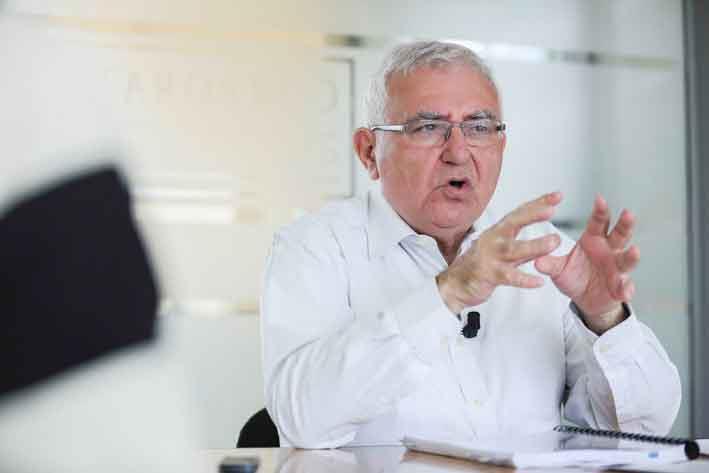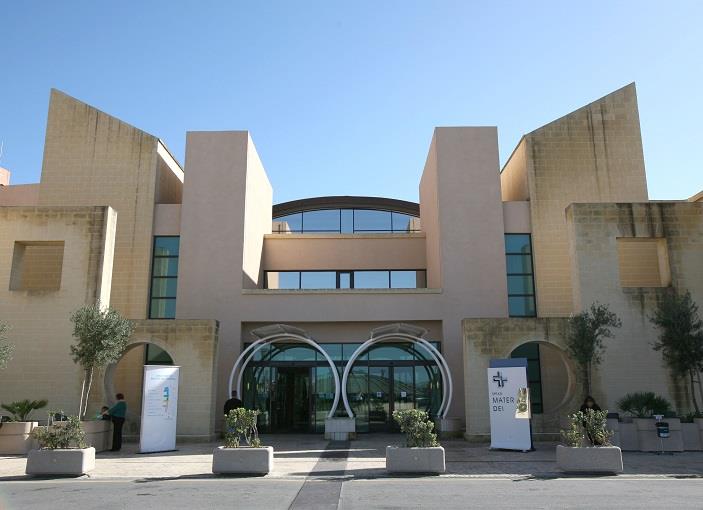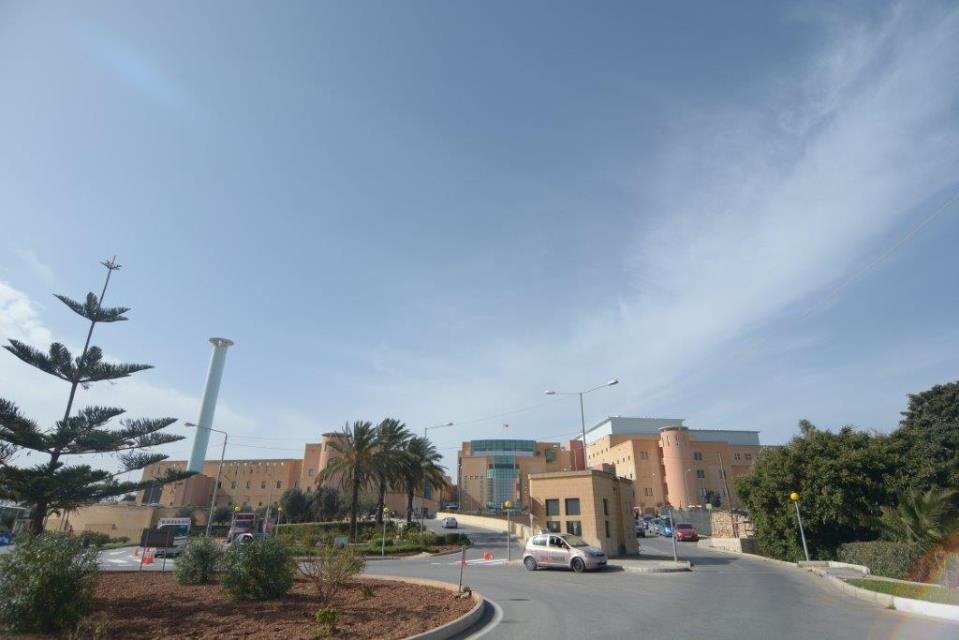Repeated oversight during the construction of Mater Dei under a Nationalist government “borders on the criminal,” an inquiry report commissioned by the government concluded.
The inquiry, headed by Justice Emeritus Philip Sciberras, concluded that it would be “naive” to consider that the previous government did not know what a dire state the project was in, particularly considering that the minister responsible for the hospital, Louis Galea, was also President of the Foundation for Medical Services at the time.
The inquiry Board said it was “evident” that the defective concrete found to have been used could not be the result of a “genuine mistake or failure of oversight,” but must have been the result of “concerted efforts from which the contractor, suppliers and possibly third parties benefitted.”

Despite these strong conclusions, the Board failed to find any concrete proof against any one individual or individuals, and recommended that the inquiry report be sent to Police Commissioner Michael Cassar for further investigations.
Many of the architects interviewed by the Board said there were notable issues with the design, workmanship and quality of the concrete used during the construction of Mater Dei, which began in 1995.
The Board concluded that it was highly likely that the weak concrete was supplied by Mixer Limited, owned by Bastjan Dalli, the brother of then Finance Minister John Dalli.

Dalli learnt of brother’s involvement ‘through the media’
In his testimony to the Board, Mr Dalli said he only got to know of the involvement of Mixer Limited in Mater Dei’s construction “through the media when the whole controversy came to light.”
He denied ever interfering in the undertaking and operations of the contract, and said he never asked who the subcontractors supplying the concrete were.
Mr Dalli told the Board that he was always against the agreement reached with the Italian company Ortesa Spa, which came up with the initial designs for Mater Dei which were later modified and delivered by Skanska.

He seemed to lay the blame on Louis Galea’s doorstep, saying that Dr Galea was the minister responsible for Mater Dei and was friends with Don Verze, who represented Ortesa.
The Board confronted Mr Galea about Don Verze, who was convicted of having bribed a public official in Italy in the 1970s and had been accused by the Italian Parliament of being associated with the mafia.
Asked whether Don Verze’s past had been flagged by the government and whether a due diligence process took place, Mr Galea said the due diligence took place on the Italian hospital and scientific institute behind the design.
He denied having any knowledge about the involvement of Mixer Limited in Mater Dei’s construction, and also denied any involvement in the choice of subcontractors, as well as knowing about allegations of political interference.

Concrete watered down by drivers, Architect says
Some shocking testimonies were heard by the Board about the “cowboy” mentality of some of the subcontractors.
Design manager Albert Cauchi told the Board that the concrete would be tested before leaving the subcontractor’s site, and would then be watered down by drivers before it reached Mater Dei, significantly reducing its strength.
Mr Cauchi, an architect, recounted to the Board how he would indicate bad workmanship on site but would be overruled by those “above him.”
On one instance a minister’s canvasser was even sent to work as a supervisor, he said.
Some first-class cowboys were engaged as subcontractors, the architect said, adding that he is not at all surprised that sub-par concrete was found to have been used.
Corruption could be seen everywhere at the time, according to Mr Cauchi.
He pointed out that then Finance Minister John Dalli was responsible for the cost plus contract signed with the contractor and all the subcontractors “came from him.”

‘Pressure to buy concrete from someone’
Mr Cauchi told the Board of one confrontation with a contractor during the meeting, where the contractor asked him what right he has tell him to stick to a budget.
Mr Cauchi said he believes that there was a hidden hand leading contractors to believe that they could go over budget.
The Board were told by concrete supplier Blokrete’s managing director Joseph Fenech that there was “pressure” to buy concrete from “someone.”
He said he could not remember the constraints faced by Blokrete back then, but did not believe that the company had any supply problems necessitating the need to subcontract concrete supplies.
Bastjan Dalli’s company Mixer Limited was subcontracted to supply concrete during the first part of 1996, when the weak concrete is believed to have been used at Mater Dei.
The Board concluded that original concrete testing, photos and testimony received strongly indicates if not confirms that the works on the support columns in question were mostly carried out in the first half of 1996.
“The original concrete tests found by the Board all indicate that the concrete in question was provided by Mixer Ltd, but as there were other suppliers providing material to the site, and the fact that not all the concrete cast was tested, this cannot be ascertained with absolute certainly. Other concrete suppliers were Blokrete, Devlands and Maghtab construction.”

Fraudulent tests carried out
The Board said that even “more disconcerting are Arup’s finding that there is also a defect in design seeing as it fails to meet the seismic load specifications that a project such as that in question, a hospital, and more specifically and A&E unit, should meet.”
The inquiry failed to specify whether the design failures emanate from Ortesa or Skanska, though it said the ultimately responsibility falls on the final designers Skanska to ensure that the site was delivered to clients met with specifications
Government failed to intervene in light of ‘serious deficiencies’
The Board said it has enough evidence to conclude that tests carried out by the contractor are fraudulent.
A peculiar testing system for the concrete was used during Mater Dei construction, in that instead of the Works Division collected samples from the contractor as is the norm, it was the contractor that delivered the samples to the Works Division.
The Board played it safe in this regard, saying it could not conclude whether the test results or testing methods were defective, or whether the contractor was misrepresenting the source of the samples.
It concluded that the FMS and the government “also failed by omission if not by commission, by failing to intervene when faced with the growing problems and concerns afflicting the project.
There was sufficient evidence of poor workmanship and design problems as early as 1996, and two independent reports highlighted “serious deficiencies in the quality of works evident on the site,” yet no action was taken.
Instead the government remained “passive, resolving only to hold further meetings rather than taking the necessary direction and drastic measures required.”
It also noted that the relationship between Don Verze and the government “is still shrouded in mystery.”

Reciprocal waiver clause inserted upon insistence of contractor
Architect Paul Camilleri, who has been an FMS board member since 2001 and was appointed president in 2007, when confronted with the fact that the reciprocal waiver of the then outstanding claims was regulated by a different provision of the Project Closure Agreement and as such the waiver in Clause 9 was not necessary in order to settle the pending claims.
He explained the reciprocal waiver clause was inserted “upon the insistence of the contractor.”
However he stated that no one had drawn attention to him as to the consequences of such a clause, not even the FMS lawyers.
But as revealed by the Malta Independent on Sunday, the supposed waiver exonerating Skanska from damages for faulty concrete used during the construction of Mater Dei Hospital does not, in actual fact, exist. The waiver that has given rise to so much controversy actually referred to a settlement of mutual disputes between the Foundation for Medical Services (FMS) and Skanska Malta; it was not a waiver from the possibility of future litigation over work carried out at the hospital.
This has been supported by a statement issued by former Prime Minister Lawrence Gonzi who said that the government still has the right to sue Skanska over the work as provided by the contract.

FMS CEO Brian St John was requested to make full presentation and did not raise any concerns about the waiver, he said.
Mr Camilleri stated that failure to reach an agreement would have led to lengthy arbitration proceedings involving millions of euros, so after requesting assurances that the works were all to the requested standards, and after having received such assurances, he felt it was prudent to close and settle the matter.
The FMS board’s approval was sought and naturally clearance and direction was received from the government, he said.
No physical tests were carried out before proceeding with the project closure agreement, he confirmed, saying that defects usually emerge immediately, and the contractor gave its assurances that there were no such defects.
He declared that negotiations with Skanska were being held in bad faith from their end, and that there could also have been fraudulent or malicious intent.

Skanska invoked waiver clause in 2011 over separate faulty works
FMS CEO Brian St John told the Board that he simply could not recall the details about the waiver granted in the project closure agreement.
The Board noted that Mr St John even had difficulty recalling who the members of the FMS Board were.
Mr St John said he had advised the Board on the project closure agreement, however could not recall if he had advised the Board regarding the waiver clause.
He was unable to either confirm or deny giving a presentation to the FMS board about the project closure agreement.
In its conclusions the Board noted that the waiver was put to the test in 2011 when an issue arose over defective water tanks and underlying concrete.
Skanska invoked the waiver course when challenged about the defects, and no further action was taken by the FMS, so much so that it released €200,000 in retention money to Skanska.
The Board said it “perturbed by the waiver,” and is not confident that due process was followed by the FMS negotiation team, and neither is it convinced that Brian St John has absolutely no memory of discussions about such an important clause.